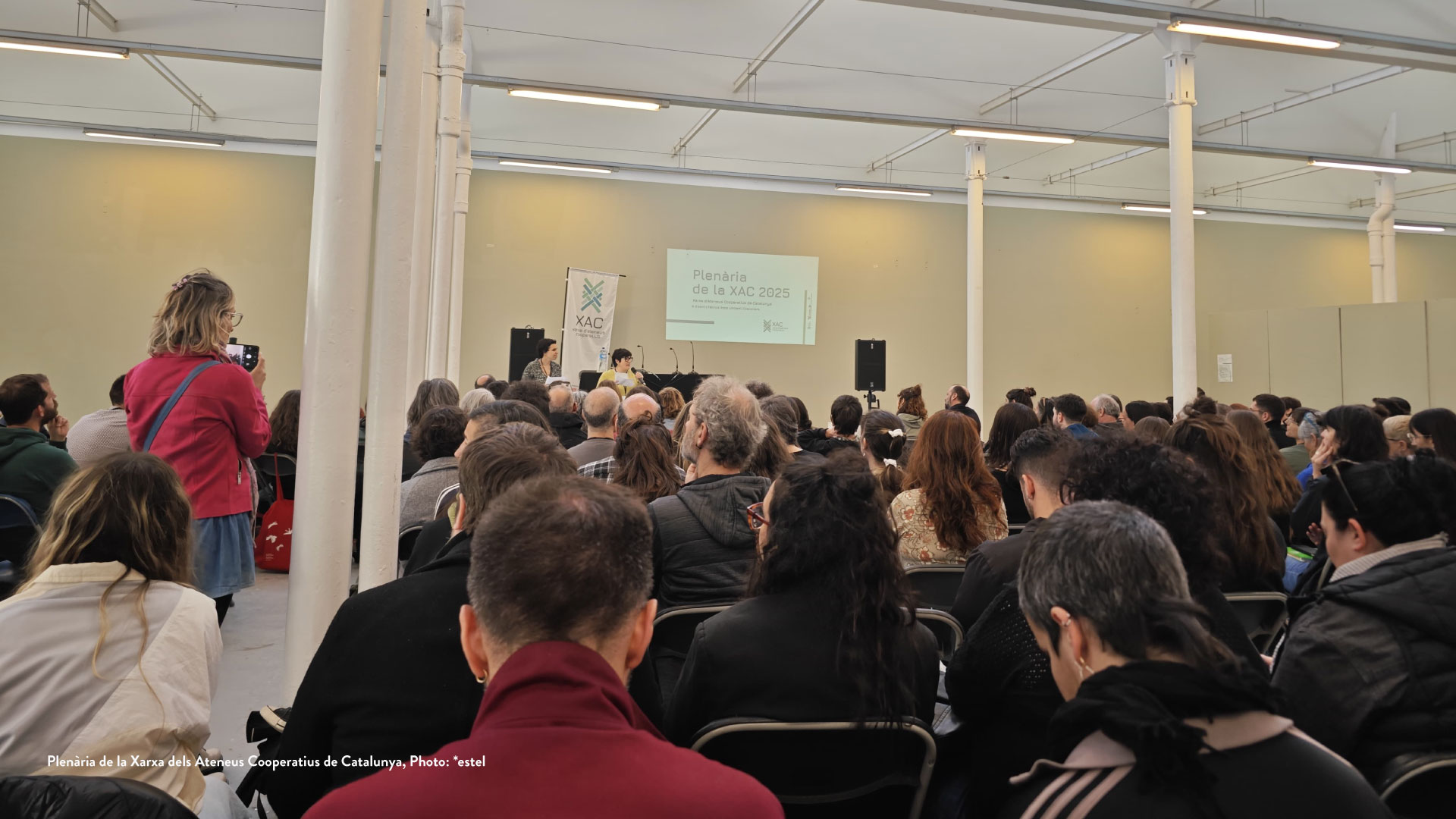Housing is a Human Right: Between Law and Everyday Life

On April 9th, we took part in a training session organized by the Cooperative Atheneums Network on the right to housing. It was a dense and inspiring space, offering legal, political, and practical perspectives on one of the most pressing challenges of our time: what does it really mean to guarantee the right to adequate housing today?
The housing model in Catalonia and Spain has clearly failed to guarantee that right. Shaped by intersecting political, economic, and legal factors — along with deep-rooted inequalities — it prioritizes the market over social need. The result is widespread exclusion, unaffordability, and segregation.
The conversation also placed this issue in a broader global context. As more than half the world now lives in urban areas, cities have become hotspots for financial speculation. Housing is no longer built for living — but for profit. As David Harvey said:
“We do not build cities for people to live in, but for capital to invest in.”
The consequences are felt locally, everywhere.
In Barcelona, over 80% of evictions are due to rent-related issues. 17% of housing stock is owned by landlords with over ten properties. Only 2.4% of the rental market is public or cooperative. And in Catalonia, young people spend an average of 118% of their income on rent — nearly four times the recommended limit.
Access to housing is blocked not only by prices, but also by real estate racism, fraud, and poor maintenance. The market fails — and the impact is uneven, depending on income, background, and geography.
The training also explored the legal frameworks that recognize housing as a right — from the Universal Declaration of Human Rights to the Spanish Constitution. These instruments affirm housing as a condition for a dignified life. Yet legal protections often fall short. In practice, courts frequently prioritize private property over social needs, and ambitious laws face constant political and legal pushback — especially in Catalonia.
So what can public policy do?
It must regulate and expand. Regulating means rent control, limiting antisocial uses (like tourist rentals or vacant flats), and enforcing social responsibility. Expansion means investing in public housing, supporting cooperatives, and ensuring land is used for collective benefit.
One of the most powerful tools available in Catalonia is the right of first refusal and repurchase, known as tanteig i retracte. This legal mechanism allows public administrations or social housing providers to purchase a property before it is sold on the open market, especially when it belongs to large owners or is located in areas of high social interest. It helps prevent speculation, recover housing for public or cooperative use, and strengthen the affordable housing stock — without waiting for new construction.
Other promising models include agreements between municipalities and developers to secure part of new housing for social or cooperative purposes. But these approaches require scale, coordination, and long-term political commitment.
Still, municipalities often lack the tools. Administrative fragmentation, under-resourced teams, and slow bureaucratic procedures undermine good intentions. In rural areas, the challenge is even greater.
Despite these limitations, the session offered encouraging examples of cooperative housing initiatives being implemented across territories. In urban settings, projects like Habicoop show how collective models can offer long-term affordability through a social, non-speculative approach. In rural contexts, initiatives like Repoblem highlight how housing cooperatives can also play a key role in reversing depopulation and enabling young people to stay in or return to their villages. These examples illustrate the adaptability of cooperative housing — but also underline the need for strong institutional support and tailored policies.
There are also major socioeconomic barriers: high deposits, restrictive credit criteria, and inaccessible support systems. Even cooperative housing — despite its potential — remains difficult to access for many due to time, cost, and complexity.
So how do we move forward?
We need to stop treating housing as a commodity — and start treating it as the right it is. That means shifting values, policy, and power: decommodifying land, investing in public and cooperative models, and ensuring inclusive access for all — especially those historically excluded.
Ultimately, this is not just a legal issue. It’s a political one. A collective one. It requires imagination, courage, and long-term commitment. And as the session reminded us: unless we change the structure of the system, there will be no housing justice.
* References
If you want to explore these ideas further, we recommend the work of Irene Escorihuela (Observatori DESCA), Jordà Escolà (Habicoop), Sebastià Mata (Repoblem), Ricard Torres (Municipality of Manresa), and Laura Muixí (Ateneu Cooperatiu de Catalunya Central).
Words of:
Konstantina Chrysostomou
Publication date:
10/04/2025
Originally written in:
English
Tags:
Everyday life
